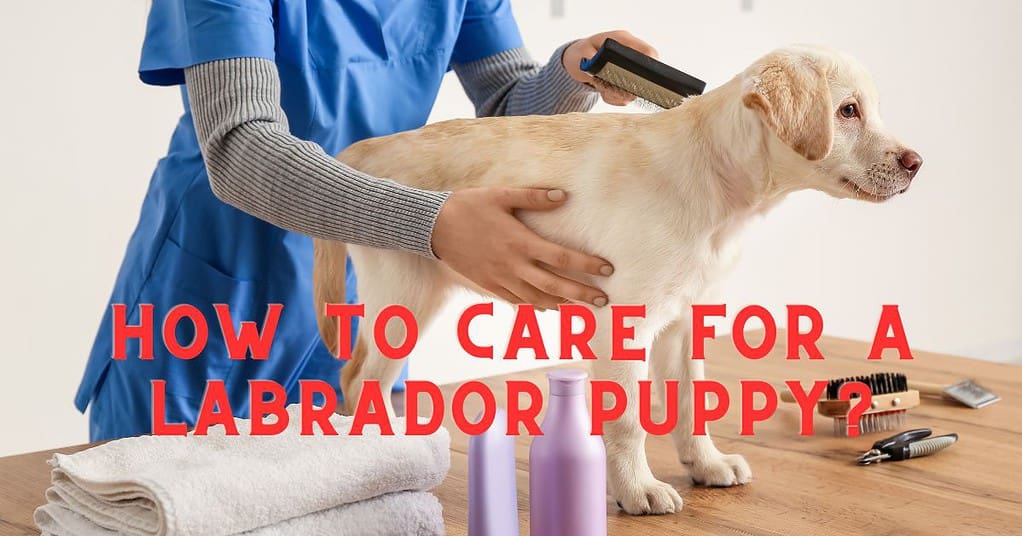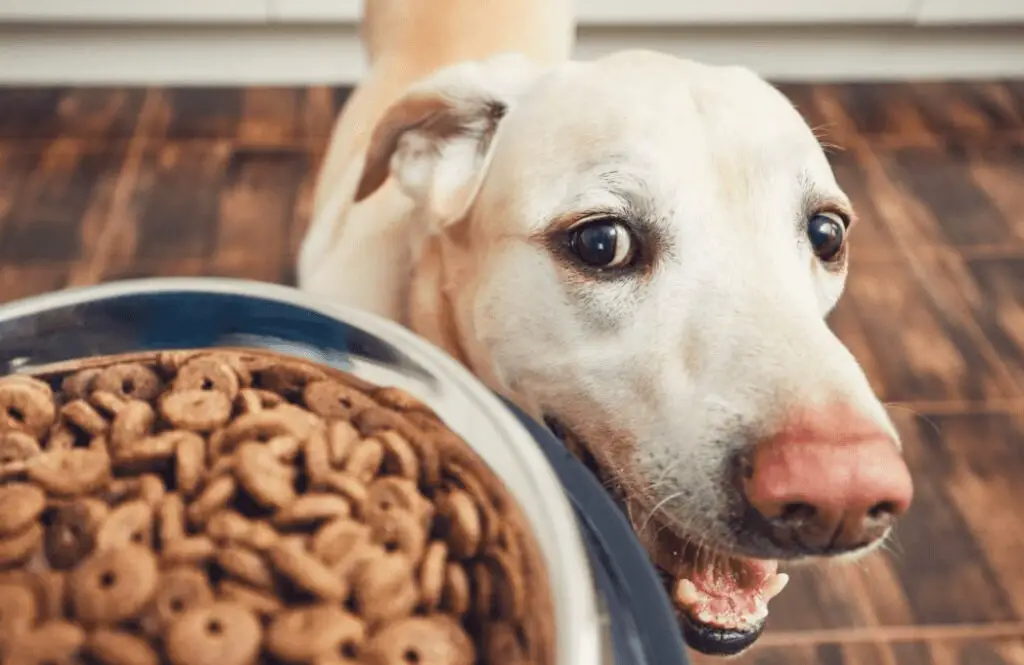Are you a new pet parent to a litter of 4-week-old Lab puppies and feeling overwhelmed? Knowing that your puppies are undergoing critical physical and mental development at this age is essential. This article will provide information about their growth stages, feeding needs, early training tips, and health monitoring plans for this popular breed!
Puppy Development Life Stages
Lab puppies go through various stages of development, starting as vulnerable newborns and progressing into independent and active 4-week-old puppies.
Newborn Puppy Developmental Stage
Newborn Lab puppies become utterly dependent on their mother’s care. Their eyes and ears remain tightly closed, making them rely heavily on smell to navigate their surroundings.
They lack a fully developed fur coat and need their mother or an alternative body heat source to maintain body temperature. Astonishingly, these fragile little creatures undergo rapid growth during the first week of life, often doubling their birth weight.
A puppy’s early days are filled with constant feeding and sleeping as they conserve energy for robust development in subsequent weeks.
1 Week Old Labrador Retriever Puppies
During their first week of life, labrador retrievers undergo rapid growth and require a heat source or their mother’s body warmth to stay comfortable. Their eyes and ears remain closed through this period, curbing the ability to peruse their environment visually or hear sounds.
The delicate newborns demonstrate little control over their bodies at this stage, relying heavily on their littermates and attentive mother for elimination purposes. Their basic survival instincts nudge them towards crawling for warmth and sustenance from their mother’s milk supply.
Remarkably, despite such vulnerability, Lab pups can double up in size during this initial week – a testament to the high nutritional value of maternal canine milk.
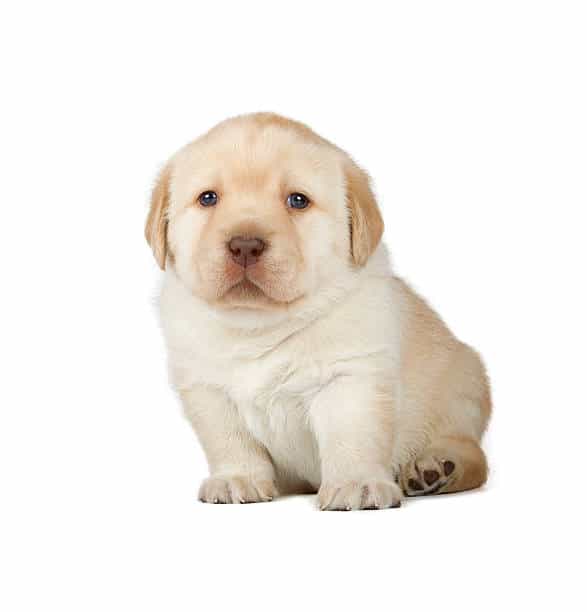
2 Week Old Labrador Retriever Puppies
Lab puppies experience significant changes in their sensory perceptions at the two-week-old mark. Their tiny eyes open, paving the way to absorb visual stimuli from their environment.
This discovery phase also includes their ears opening, allowing them to pick up sounds and voices surrounding them. These developments are crucial as they kickstart interaction with littermates and humans alike, marking an essential step within the puppy stages week by week growth process.
Although these pups remain heavily dependent on their mother’s care at this stage, such progress shows clear signs that they continue on a path of rapid development ignited since birth.

3 Week Old Labrador Retriever Puppies
Lab puppies show more personalities and characteristics at three weeks old. They become more active and curious about the world around them. This is also when they begin teething, which can lead to some discomfort for both the puppy and its mother.
It’s important to provide appropriate chew toys or frozen washcloths to gnaw on as their teeth come in. Additionally, lab puppies may begin experimenting with solid food at this stage.
While they rely heavily on their mother’s milk for nutrition, introducing small amounts of softened puppy kibble can help prepare them for weaning later. Monitoring their progress closely during this period is crucial to ensure proper growth and development.
In-depth Look at 4-Week-Old Labrador Retriever Puppies
At 4 weeks old, lab puppies undergo significant physical and mental development. This stage is crucial for breeder involvement and early training. Discover what to expect during this exciting period of a Labrador Retriever’s life.
Physical and Mental Development
Labrador puppies undergo significant physical and mental development at four weeks old. By this age, they are starting to resemble miniature versions of adult Labs, with their bodies becoming more robust and sturdy.
They have grown in size and can now move around with more agility and coordination. Their motor skills improve as they walk, run, and play.
Lab puppies also start exploring the world around them at four weeks old using their senses. Their sense of smell becomes sharper, allowing them to explore new scents in their environment. They will begin to interact more with littermates and humans, developing important socialization skills.
Mental stimulation is crucial during this stage of development. Various toys that encourage problem-solving and interactive play can help stimulate their minds as they continue learning about cause and effect.

Breeder Involvement
Breeder involvement is crucial in ensuring Lab puppies’ proper development and care during the first four weeks of their lives. During this time, the puppies rely on their mother or a body heat source to maintain their body temperature, as they cannot regulate it themselves.
Additionally, breeders assist with stimulating elimination for the puppies until they gain control over their rear end. They closely monitor the transition from milk to solid food, ensuring the puppies receive proper nutrition and introducing them to appropriate food types at around four weeks old.
Breeders also play a key role in socializing the puppies and preparing them for life with humans before they are ready for adoption at around seven weeks old.
Feeding Your Labrador Retriever Puppy At 4 Weeks Of Age
At 4 weeks old, your lab puppy is ready to start transitioning to solid food. Provide high-quality puppy food that meets their nutritional needs and follow a Labrador Retriever puppy feeding chart for guidance.
Start introducing them to gentle handling during meals and use positive reinforcement to encourage good behavior. Proper nutrition is crucial for their growth and development, so read on to learn more about feeding your 4-week-old lab puppy.
Appropriate Food Types For 4 week old Labrador Retriever
Labrador puppies have specific nutritional needs that should be met through the right food choice. Providing them with high-quality dog food specially formulated for puppies is important.
This ensures they receive all the essential nutrients for their growth and development. Look for puppy food that balances protein, carbohydrates, healthy fats, fiber, vitamins, and minerals.
Additionally, large-breed puppy food is recommended for Lab puppies due to their predisposition to joint issues. Avoid poor quality brands as they may not provide sufficient nutrients and can lead to nutritional deficiencies.
Importance of High-Quality Dry Food
Feeding your four-week-old lab puppy high-quality dry dog foods is essential for their overall health and development. High-quality dog food ensures they receive the necessary nutrients to support their growing bodies, promote healthy muscle and bone development, enhance their immune system, and nourish their skin and coat.
Omega fatty acids in high-quality food are crucial for puppies’ proper brain and eye development. Additionally, a well-balanced diet can help prevent nutritional deficiencies that could lead to various health problems.
Choosing the right dog food brand with nutrient-dense ingredients specific to puppies‘ needs is essential for providing them with a solid foundation for a happy and healthy life.

Labrador Retriever Nutritional Requirements at 4 weeks Of Age
Labrador puppies have specific nutritional requirements to support their rapid growth and development. They rely on their mother’s milk for essential nutrients and antibodies during the first few weeks.
However, by around four weeks old, they can start being introduced to softened food, wet foods or kibble alongside nursing from their mother. Choosing high-quality puppy food specifically formulated for large breed puppies like Labradors is essential.
These special puppy foods provide the right balance of protein for muscle development, carbohydrates for energy, and fiber for healthy digestion. Additionally, they are enriched with vital vitamins and minerals needed to support bone growth and overall health.
Labrador puppies should be fed multiple small meals daily to prevent overeating and digestive issues.
As Lab puppies continue to grow, monitoring their weight closely is crucial. Overfeeding can lead to excessive weight gain, which strains the developing joints and increases the risk of skeletal issues later in life.
On the other hand, underfeeding can result in stunted growth and nutritional deficiencies.
Labrador Retriever Puppy Feeding Schedule And Feeding Stages
As your Labrador puppy grows and develops, their dietary needs and portions will evolve too. Below is an informative feeding instructions chart to guide you on what and how much to feed your Lab puppy throughout their early stages of life.
| Age | Food Type | Portions | Meals Per Day |
| Newborn – 4 weeks | Mother’s Milk | Unlimited | Continuous |
| 4 weeks | Begin introducing High-quality Softened Puppy Food. Avoid raw feeding | Small amounts mixed with Mother’s Milk | 4 |
| 5 – 7 weeks | Transitioning to High-quality Softened Puppy Food or wet foods | Gradually increase to 2 cups | 4 |
| 8 week old labrador puppy | High-quality Large Breed Puppy Food For Labs | 2 cups of food | 4 |
| 3 months of age | Transitioning to Adult Dog Food like Royal Canin | 2.5 cups – 3 cups of food | 3 |
Training Your Lab Puppy At 4 Weeks Of Age
At 4 weeks old, your lab puppy is ready to begin advanced training.
Initiating Gentle Handling
Gentle handling is an essential aspect of training your 4-week-old lab puppy. It helps them become comfortable with the human touch and prepares them for future interactions and socialization. Here are some key steps to initiate gentle handling:
- Start by sitting on the floor, at the puppy’s level, in a calm and quiet environment.
- Approach your puppy slowly and calmly, avoiding sudden movements that may startle them.
- Gently stroke your puppy’s back and sides, using slow and soothing motions.
- Gradually introduce handling of their paws, ears, tail, and mouth, making sure to be gentle and patient.
- Massage their legs and feet to familiarize them with touch in those areas.
- Offer treats or praise during the handling process to reinforce positive associations.
- Pay attention to your puppy’s body language – if they show signs of discomfort or stress, stop the handling session and try again late
- Make these handling sessions short but frequent throughout the day to build your puppy’s tolerance.
Teaching Name Recognition With Basic Commands
Teaching name recognition to your 4-week-old Lab puppy is essential in their training and development. Here are some key tips to help you successfully teach your puppy their name:
- Choose a short and distinct name for your puppy.
- Use positive reinforcement techniques, such as treats or praise, to associate your puppy’s name with something enjoyable.
- Begin by saying your puppy’s name in a clear and upbeat voice. Make sure you have their attention.
- When your puppy looks at you after hearing their name, immediately reward them with a treat or praise. This will reinforce the connection between their name and a positive experience.
- Practice repeating this process several times daily in different settings and distractions to help your puppy learn to respond to their name regardless of the environment.
- Be consistent with using your puppy’s name only when you want their attention or give them a command.
- Refrain from using their name for no reason, as it may lose effectiveness.
- Gradually phase out the use of treats as rewards, but continue to praise them whenever they respond correctly to their name.
- If your puppy doesn’t respond to their name initially, avoid getting frustrated or raising your voice. Instead, go back to step one and reinforce the association between their name and rewards.
Establishing Dominance And Basic Obedience
Establishing dominance with your 4-week-old Lab puppy is essential for creating a strong bond and establishing yourself as the leader. This involves setting clear boundaries and rules, consistently enforcing them, and rewarding good behavior.
Your puppy will learn to respect you as their alpha leader by being consistent in your actions and expectations. Remember to use positive reinforcement techniques such as treats and praise when your puppy follows commands or exhibits desired behaviors.
Avoid physical punishment or yelling, as these methods can create fear and anxiety in your puppy. With patience and consistency, you can establish a healthy dynamic with your 4-week-old Lab puppy based on trust, respect, and positive reinforcement.
Simple Commands And Info On Command Training
To set a strong foundation for training your 4-week-old Labrador puppy, it’s essential to start introducing basic skills and commands. You can establish good behavior and build a strong bond with your puppy by teaching these early. Here are some key skills and commands to focus on:

Name Recognition:
Use your puppy’s name consistently when interacting with them. Reward them with praise or a treat whenever they respond to their name.
Sit:
Teach your puppy to sit by gently pressing down on its hindquarters while saying “sit” in a firm but gentle voice. Reward them with praise and a treat when they successfully sit.
Stay:
Start by having your puppy sit, then take a step back while using the command “stay.” Gradually increase the distance and duration of the stay before rewarding them for a successful stay.
Come:
Encourage your puppy to come towards you using their name, followed by the command “come.” Make it exciting by crouching, clapping, or using an enthusiastic tone. Reward them when they come to you.
No Biting:
Puppies explore the world through their mouths, so teaching them not to bite or nip at their hands or clothing is crucial. Redirect their attention to toys when they are nipping and reward them for chewing appropriate items.
Leash Training:
Introduce your Labrador puppy to a leash early on so that they become comfortable with wearing one. Start indoors in a distraction-free environment, allowing them to get used to walking beside you.
Potty Training:
Begin housebreaking your pup by establishing a consistent routine for bathroom breaks outside after eating, drinking, waking up from sleep, or playtime. Praise and reward them for eliminating in the appropriate spot.
Using Positive Reinforcement
Positive reinforcement is a highly effective method for training 4-week-old Lab puppies. This approach involves rewarding desired behaviors with treats, praise, or playtime, which helps reinforce those behaviors and encourages the puppy to continue behaving that way.
Physical punishment and yelling should never be used as they can cause fear and aggression in dogs. You can establish a strong bond with your Lab by offering a treat whenever your puppy follows a command correctly or praising them when they exhibit good behavior.
Maintaining Your Lab Breed Puppies Health
To ensure your 4-week-old lab puppy stays healthy, monitor their growth weekly, maintain the right weight for their breed, and be aware of potential health risks or issues that may arise.
Newborn Puppies Growth Stage
Monitoring the growth of your Lab puppy each week is an integral part of maintaining optimal health.
| Week | Weight | Height | Development & Ideal body condition | Feeding Adjustments |
| 4 weeks | 4-6 lbs | 5-6 inches | Bowel control begins with solid food intake increases. | Transition to solid food begins, and portion sizes adjusted accordingly. |
| 8 week old puppies | 8-10 lbs | 7-8 inches | Mostly weaned, heightened curiosity and playfulness. | Transition to dog food complete, portion size adjusted to accommodate growth. |
| 11 weeks | 20-30 lbs | 10-12 inches | Possible growth spurt, increased energy, and confidence. | Food allowance may need to increase due to growth spurt and increased energy expenditure. |
| 14 weeks | 25-35 lbs | 12-14 inches (rule of thumb) | Begins losing milk teeth and increases chewing behavior. | No major changes in diet. Provide chew toys to alleviate discomfort from teething. Time for adult teeth |
Keeping Your Lab at The Right Weight
Maintaining a healthy weight is crucial for Labradors as excess weight can lead to joint problems, cardiac conditions, diabetes, and a higher risk of cancer. Labradors are known for their voracious appetite, making it essential to control their food intake.
Large-breed puppy food is recommended for Lab puppies as it helps control skeletal growth and prevents joint issues. To ensure your Labrador stays at the right weight, monitor their portion sizes and avoid overfeeding.
Regular exercise is also essential – aim for at least 30 minutes of vigorous activity every day to keep them fit and help burn extra calories. Obesity affects a significant percentage of all dogs, including Labradors, with a genetic predisposition.
Risks and Health Issues
Like all dogs, Labrador puppies are susceptible to certain risks and health issues that owners should be aware of. One important consideration is their weight, as Labradors are prone to weight gain.
It’s crucial to monitor their growth each week and ensure they are staying at the right weight for their age. Additionally, Lab puppies may experience joint problems later in life if their skeletal growth is not properly controlled.
This is why feeding them a high-quality diet formulated explicitly for large-breed puppies is so important. The food should provide the necessary nutrients like protein for muscle growth, carbohydrates for energy, and essential fatty acids for overall health.
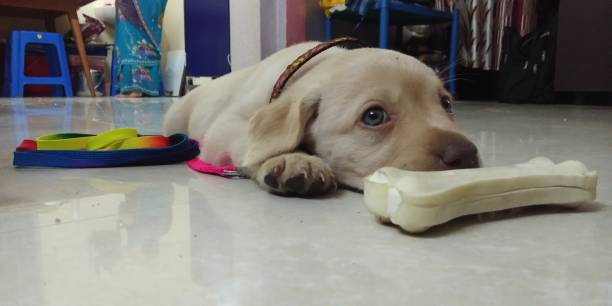
Frequently Asked Questions
How Often Should I Feed My 4-Week-Old Lab Puppy?
A 4-week-old lab puppy should be fed 3-4 times per day. You can start by feeding them 1/4 cup of food per meal and gradually increasing the amount as they grow.
What Type Of Food Should I Feed My 4-Week-Old Lab Puppy?
You should feed your 4-week-old lab puppy high-quality food designed for their age and breed. The food should be easy to digest and give them all the nutrients they need to grow and develop.
Can I Start Training My 4-Week-Old Lab Puppy?
You can start training your 4-week-old lab puppy, but keeping the sessions short and simple is vital. Focus on basic commands like sit, stay, and come. You can also teach them to use a crate or potty outside.
How Do I Potty Train My 4-Week-Old Lab Puppy?
The best way to potty train a 4-week-old lab puppy is to take them outside to go to the bathroom every 30 minutes to an hour. When they go to the bathroom outside, be sure to praise them and give them a treat. If they have an accident inside, clean it up immediately and do not scold them.
When Can I Start Taking My 4-Week-Old Lab Puppy For Walks?
You should take your 4-week-old lab puppy for walks once they are at least 6 weeks old. Before that, their bones and joints are still developing, and they are not strong enough to walk long distances.
Should I Be Concerned If My 4-Week-Old Lab Puppy Starts Losing Their Baby Teeth?
It is normal for 4-week-old lab puppies to start losing their baby teeth. This is a sign that they are growing and developing normally. You may notice some loose teeth or even see your puppy chewing on their teeth and trying to get them out.
What Health Issues Should I Look Out For In My 4-Week-Old Lab Puppy?
There are a few health issues that you should look out for in your 4-week-old lab puppy. These include:
- Parvo: This is a severe viral infection that can be fatal.
- Coccidiosis: This parasitic infection can cause diarrhea and weight loss.
- Kennel cough: This is a highly contagious respiratory infection.
Author Profile
- Site Owner And Planning Specialist
-
Aritra, the founder of Labradorandyou.com, is a lifelong dog lover whose passion ignited for Labradors for their loyalty and intelligence. With extensive research and personal experiences, Aritra has become a Labrador expert, offering a rich resource on the breed. Labradorandyou.com provides reliable, timely, and evidence-based information, including Labrador-specific product reviews, training techniques, and care tips.
Labradorandyou.com was born out of Aritra's passion and his desire to share his profound knowledge about the breed. The site serves as a comprehensive resource, offering a wealth of up-to-date information for Labrador owners and enthusiasts alike
Also by the author
-
 FAQNovember 17, 2023How To Adopt An Emotional Support Dog?
FAQNovember 17, 2023How To Adopt An Emotional Support Dog?
-
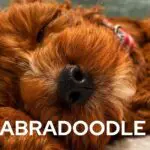 Mix-BreedsNovember 16, 2023Red Labradoodle Ultimate Guide: Breed Facts, Care Tips
Mix-BreedsNovember 16, 2023Red Labradoodle Ultimate Guide: Breed Facts, Care Tips
-
 Top BreedersNovember 8, 2023Breeding Labradors: Everything You Need to Know
Top BreedersNovember 8, 2023Breeding Labradors: Everything You Need to Know
-
 FAQOctober 17, 2023Do Dogs Like Music? Researchers Say Yes! Find Out
FAQOctober 17, 2023Do Dogs Like Music? Researchers Say Yes! Find Out
